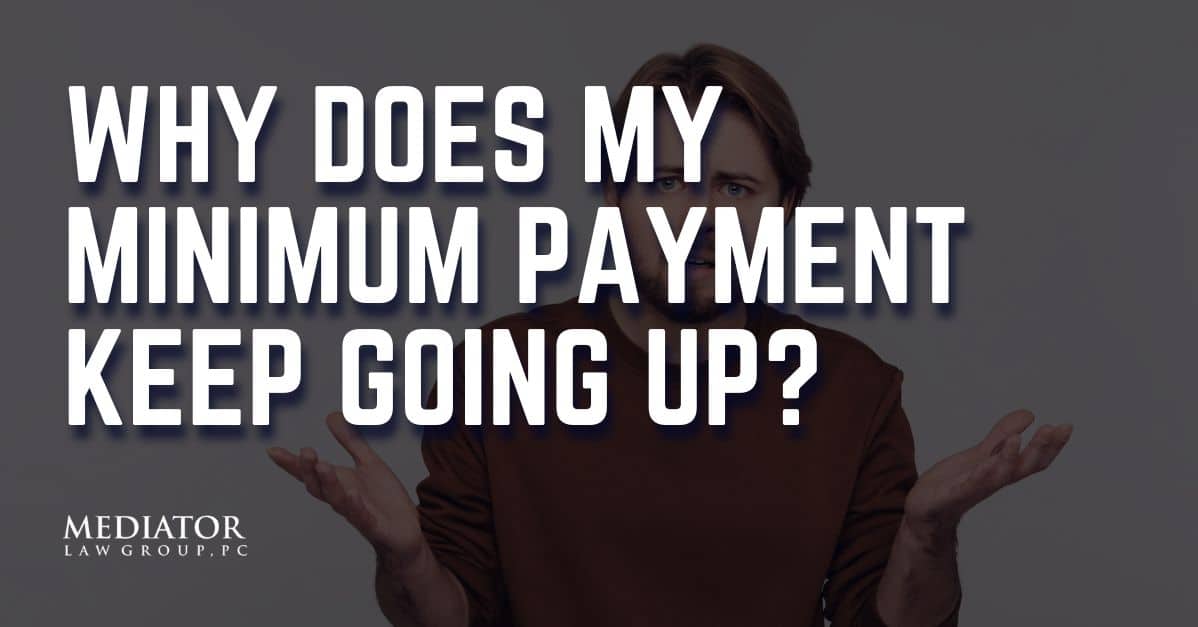Understanding Rising Credit Card Minimum Payments
If you’ve opened your credit card statement only to find your minimum payment creeping higher each month, you’re not alone. Many consumers struggle with rising credit card minimum payments, especially when interest rates fluctuate or balances grow. Asking, “why does my minimum payment keep going up?” is the first step to regaining control of your finances.
Why Minimum Payments Increase
Several factors can cause your monthly minimum to rise:
-
Interest Rate Hikes: If your card has a variable APR, any increase by the Federal Reserve or your lender will raise the interest portion of your payment.
-
Balance Growth: Using your card while carrying a balance means higher payments over time.
-
Late Fees and Penalty APRs: Missing a payment can trigger higher interest rates, significantly inflating your minimum due.
-
Calculation Method: Credit card companies typically calculate minimums as a percentage of your balance plus fees, so as your debt increases, so does your required payment.
Strategies to Lower Your Payments
While credit card companies design minimums to protect their interests, there are ways to reduce your financial stress:
-
Pay More Than the Minimum: Even an extra $20–$50 each month can help lower your balance faster.
-
Negotiate Lower Rates: Some lenders may reduce your APR if you’ve been a long-term customer with a solid history.
-
Seek Hardship Programs: Creditors sometimes offer short-term relief for financial struggles.
-
Work with a Debt Relief Professional: Partnering with a legal team like Mediator Law Group can help restructure debt and reduce payments more effectively than DIY approaches.
How Mediator Law Group Can Help
At Mediator Law Group’s Debt Relief Services, our attorneys specialize in negotiating directly with creditors. Unlike debt settlement companies, our legal team provides the protection of attorney-client privilege and ensures creditors comply with California and U.S. consumer protection laws.
We’ve helped clients lower interest rates, stop harassing calls, and design repayment strategies that actually work. Instead of wondering how to manage rising credit card minimum payments, you can take back control of your financial future.
For broader information on credit card rules, visit the Consumer Financial Protection Bureau (CFPB).
FAQ Section
1. Why does my minimum payment keep going up every month?
Your minimum may rise due to higher balances, interest rate increases, or late fees. Credit card issuers often calculate minimums as a percentage of your balance, so even small increases in spending or fees can raise the payment.
2. Can late fees cause higher minimum payments?
Yes. Late fees and penalty APRs can dramatically increase the interest portion of your bill. This means your minimum payment will climb, making it harder to catch up if you’ve fallen behind.
3. How are minimum payments calculated?
Most credit card companies use a formula based on a percentage of your outstanding balance plus accrued interest and fees. This ensures they collect on interest while requiring only partial repayment of the balance.
4. What can I do to lower my monthly minimums?
Paying more than the minimum, negotiating with your creditor, or enrolling in a hardship program can help. Working with an attorney can provide stronger results and long-term debt relief solutions.
5. Is professional help better than managing debt on my own?
While some individuals can manage debt independently, a debt settlement attorney offers legal protections and negotiation power that DIY approaches lack. This can save time, reduce stress, and lead to more effective results.









